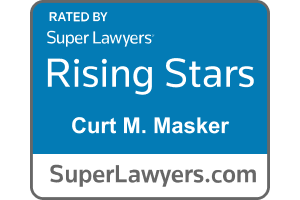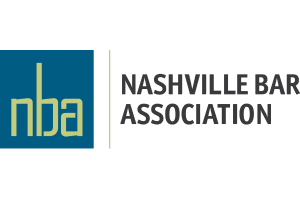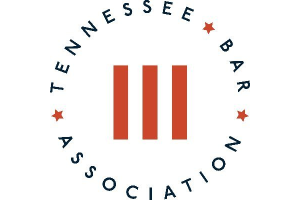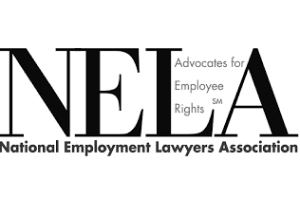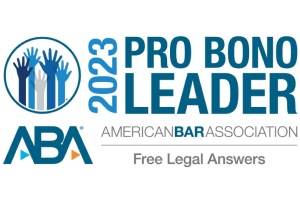for Workers
EEOC Lawyer
Our skilled Nashville EEOC attorneys represent employees before the U.S. Equal Employment Opportunity Commission (EEOC).
If you have endured workplace discrimination or harassment, you need to know what next steps to take to maximize your claims. You may have read something about the need to file a complaint with the EEOC. It is very important to understand that filing an EEOC complaint (known as a “Charge of Discrimination”) is much more complex than you might realize.
Speaking with an experienced employment lawyer at this early stage is crucial to ensuring you avoid unintentionally harming your legal interests. What facts to state, what boxes to check, what legal entities to list, what dates to specify – these and many more factors have the potential to undermine your legal claims if your case ends up in court.
Nashville employment attorneys Curt Masker and Caraline Rickard recommend that employees consult with an experienced lawyer before filing a charge because your words and actions during the EEOC process can legally harm you. Also, in Middle Tennessee, the wait time for an employee to be interviewed by the EEOC before filing a charge is 2-3 months. If your lawyer files the charge for you, there is no wait.
Rickard Masker, PLC accepts representation in many employment cases on a contingency fee basis and does not charge extra to represent you during the EEOC process. In other words, it costs you nothing extra to ensure your legal interests are protected.
Your employer has a team of lawyers representing its interests at the EEOC—you need to protect yourself by hiring a lawyer and leveling the playing field.
Overview of the EEOC
The EEOC is a federal governmental agency that enforces federal anti-discrimination laws. It is tasked with investigating charges of discrimination, making determinations of whether or not discrimination occurred, and, in a limited number of cases, filing suit on behalf of employees. The EEOC enforces laws that protect employees from discrimination, harassment, or retaliation based on the following protected categories:
- Race
- Color
- Religion
- Sex
- Pregnancy
- Sexual Orientation and Gender Identity
- National origin
- Disability
- Genetic Information
Criteria for Filing an EEOC Charge
Before filing an EEOC charge, be aware of the following prerequisites:
- Your employer must have at least 15 employees (20 employees for age claims)
- You must file your claim(s) within 300 days of the discriminatory act(s). For federal employees, this deadline is only 45 days.
- You are an employee, not an independent contractor
Steps in the EEOC Process
Below are the big picture steps involved in filing a charge of discrimination with the EEOC. Keep in mind this represents a simplification of a lengthy and complex process.
- Filing a Charge of Discrimination – You (or your attorney) will file a Charge of Discrimination with the EEOC.
- Mediation – If both parties agree to mediation, your charge is assigned to a mediator. Mediation is an informal attempt to resolve your claims before the EEOC begins its investigation.
- Investigation – If mediation is declined or unsuccessful, your Charge is transferred to the EEOC’s Enforcement division which investigates your claims.
- Interview: At this stage, an agency investigator may request an informal interview with you to gather more facts and information about your claims. Your lawyer will be present during the interview.
- Position Statement: The EEOC investigator will then request that the employer respond to your claims. The employer’s written response is known as a Position Statement.
- Rebuttal: After the Position Statement is filed, your lawyer has an opportunity to file a response (informally known as a “Rebuttal”). This response is entirely optional and may or may not be worthwhile in your case.
- Determination – After the parties have filed their written submissions, and the agency has completed its investigation including interviewing witnesses and gathering relevant documents, the EEOC will issue its decision. This “determination” either finds “reasonable cause” that discrimination occurred or “no reasonable cause” based on the available evidence. About 95% of determinations are “no reasonable cause” findings in which the EEOC cannot establish that discrimination occurred.
- Conciliation – In the rare cases that the EEOC finds “reasonable cause” that discrimination occurred, the next step is Conciliation, which is similar to mediation but the EEOC acts as a party to the action. “Reasonable cause” determinations occur in less than 5% of EEOC charges.
- Right to Sue Letter – If “no reasonable cause” is found, then the EEOC will issue you a Notice of Rights (aka Right to Sue) letter, which your lawyer can attach to court filings to prove that you exhausted the required administrative procedures prior to filing suit.
It’s worth noting that after 180 days have passed since the filing of your charge, you can request the Right to Sue letter and bypass much of the EEOC process. Age claims under the ADEA can be filed in court without a Right to Sue letter 60 days after the charge was filed. Requesting the Right to Sue letter early occurs in cases where the lawyer feels strongly in the legal merit of the claims and also believes the EEOC process will not provide valuable new information. Also, requesting the Right to Sue may be desirable when a Tennessee state law deadline (or statute of limitation) is approaching and the lawyer wishes to file federal and state claims at the same time.
Do Not Wait – Strict Deadline to File
In Tennessee, the law requires claims to be filed within a certain period of time. This deadline is known as a “statute of limitations.” For discrimination and harassment cases, you must file a charge with the Equal Employment Opportunity Commission within 300 days after the harm occurred. This deadline is strictly enforced and courts routinely reject claims filed after it has passed. As such, do not wait to file a charge of discrimination. Note that calling the EEOC generally does not constitute “filing” so do not assume you have file until you speak with an attorney.
Call a Nashville Employment Lawyer Today
The EEOC charge process is long and complex, and you cannot afford to get it wrong. If you believe you have been subjected to unlawful workplace discrimination, harassment, or retaliation, contact an EEOC attorney today.
Our skilled employment attorneys in Nashville have significant experience filing claims with the EEOC and will fight for you throughout the process.


